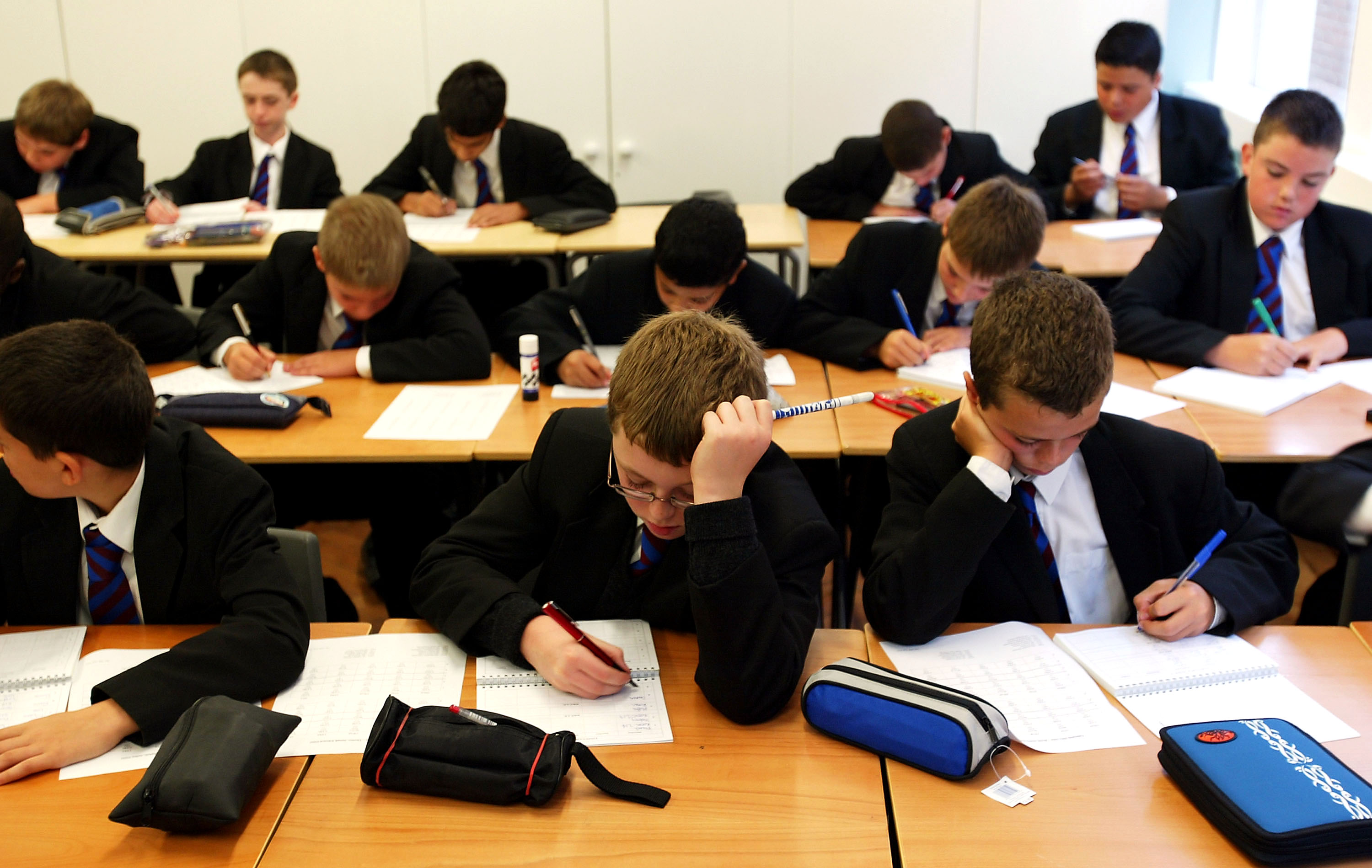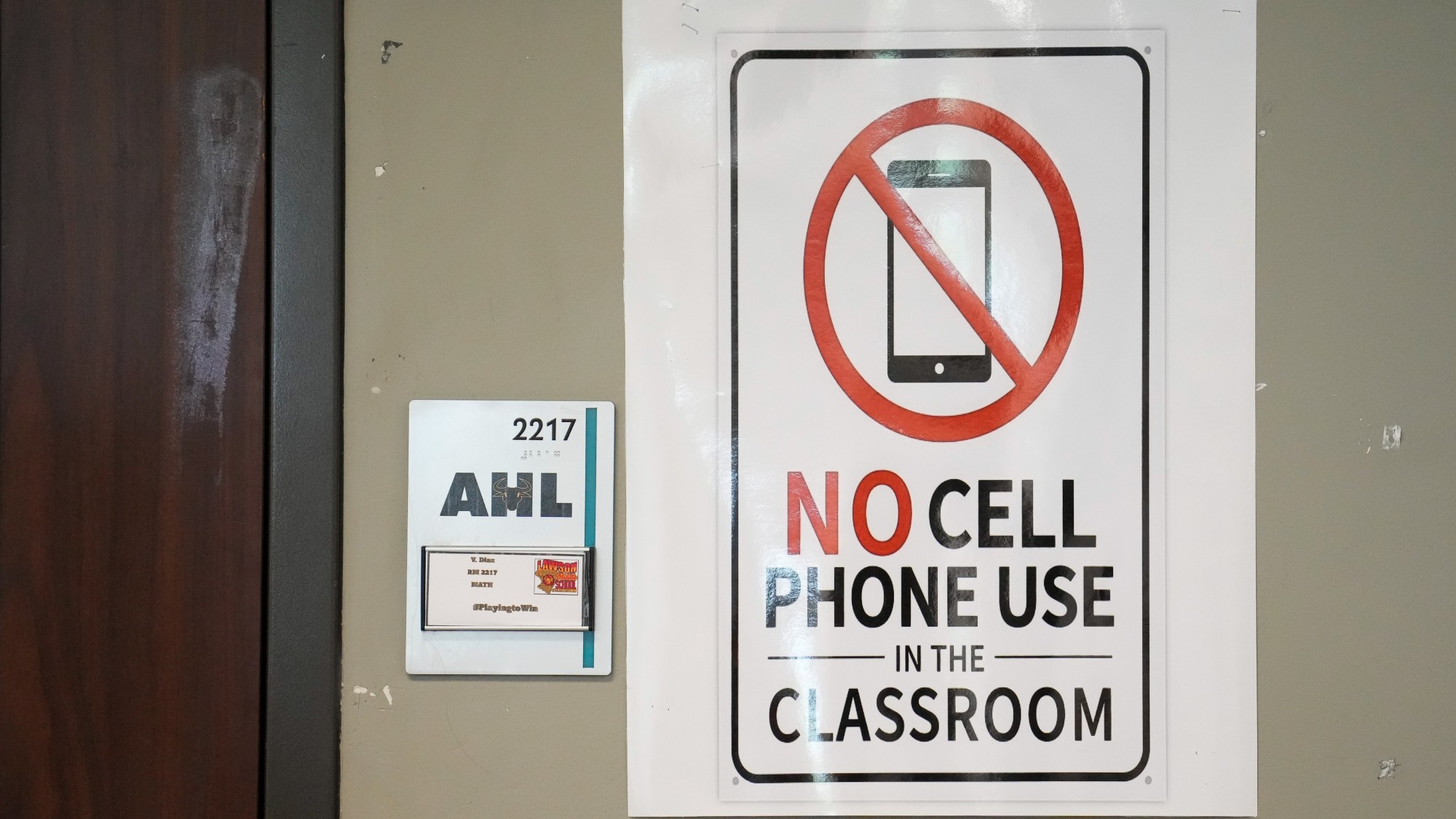Off-rolling: how schools boost their performance by making pupils disappear
One in four teachers claim to have seen children forced out to boost performance rankings

A free daily email with the biggest news stories of the day – and the best features from TheWeek.com
You are now subscribed
Your newsletter sign-up was successful
One in four teachers in England have told Ofsted that pupils have been illegitimately removed from their schools, in a controversial practice known as “off-rolling”.
The newly released figures suggest that off-rolling - often done to artificially boost a school’s performance in league tables - is widespread. According to The Guardian, some teachers told the schools watchdog that parents who are seen as “an easy touch or not well-educated” are sometimes approached informally and told it “will be difficult for their child to stay”, in a bid to persuade the family to remove or homeschool the youngster.
Although just 25% of the teachers questioned said they had witnessed the practice, a further 50% said they were aware of it. “These are troubling findings. While not every school is off-rolling, teachers tell us that some are clearly pushing vulnerable pupils out through the back door with little thought to their next steps and best interests,” said Amanda Spielman, Ofsted’s chief inspector.
The Week
Escape your echo chamber. Get the facts behind the news, plus analysis from multiple perspectives.

Sign up for The Week's Free Newsletters
From our morning news briefing to a weekly Good News Newsletter, get the best of The Week delivered directly to your inbox.
From our morning news briefing to a weekly Good News Newsletter, get the best of The Week delivered directly to your inbox.
In April, researchers from the Education Policy Institute (EPI) revealed that one in 12 pupils in England – just over 8% – who began secondary school in 2012 and had been due to finish in 2017 were removed from their school rosters for reasons that “weren’t a permanent exclusion or family move”, according to Schools Week.
The number of affected pupils was up from 7.8% in the 2011 cohort, and adds further weight to claims that the practice is more common than many had feared, says Geoff Barton, general secretary of the Association of School and College Leaders (ASCL), which represents many secondary school headteachers.
“Our experience is that the vast majority of school leaders deplore off-rolling. Nevertheless, the findings of this study are worrying and we support any action to put a stop to off-rolling,” Barton told The Guardian.
What is off-rolling and why is it on the rise?
A free daily email with the biggest news stories of the day – and the best features from TheWeek.com
Off-rolling is a practice whereby pupils are removed from a school informally, rather than through a formal exclusion process.
According to The Guardian, some students who are off-rolled leave through a so-called “managed move”, when a school finds another institution to take them on, while others are “encouraged to be home-educated”. A report last year by education research group FFT Education Datalab found that as many as 7,700 pupils in England had slipped completely off the radar after being off-rolled from a state school, and were neither enrolled at another institution nor recorded as taking their GCSEs.
The EPI calculated the extent of the phenomenon by looking at records of school removals and “discounting moves that seemed rational and legitimate”,such as “those driven by parental choice, a house move, transferring to a special school or a school with a better Ofsted rating”, said EPI chair David Laws.
“Unexplained moves included those in which pupils ended up in lower-quality schools or pupil referral units or disappeared entirely from the system,” he added.
Why is it controversial?
Unlike formal exclusions, off-rolling does not require the school to “record the reason why these pupils have been removed from a school roll”, says The Guardian.
Critics accuse schools of using the tactic “to remove pupils who might have challenging behaviour, or whose poor results might damage league table performances”, the BBC reports.
And according to education news site Tes, pupils with “certain characteristics” are “disproportionately represented among those leaving school rolls”.
This claim is backed up by EPI research which found that pupils most likely to experience an unexplained exit included those who are in the social care system; have been previously expelled; are eligible for free school meals; or are from black and ethnic minority backgrounds.
ASCL general-secretary Barton called the off-rolling figures “worryingly high”, particularly regarding the disproportionate effects on poorer and minority children.
But Paul Whiteman, leader of the National Association of Head Teachers, suggests the figures should be viewed with caution, saying people must be careful “not to conflate and condemn all the different reasons a pupil might leave a school’s roll”.
“Every individual circumstance is different,” he added.
A Department for Education spokesperson stressed that “it is against the law to remove pupils on the basis of academic results - any school that does it is breaking the law”.
-
 Political cartoons for February 14
Political cartoons for February 14Cartoons Saturday's political cartoons include a Valentine's grift, Hillary on the hook, and more
-
 Tourangelle-style pork with prunes recipe
Tourangelle-style pork with prunes recipeThe Week Recommends This traditional, rustic dish is a French classic
-
 The Epstein files: glimpses of a deeply disturbing world
The Epstein files: glimpses of a deeply disturbing worldIn the Spotlight Trove of released documents paint a picture of depravity and privilege in which men hold the cards, and women are powerless or peripheral
-
 The pros and cons of banning cellphones in classrooms
The pros and cons of banning cellphones in classroomsPros and cons The devices could be major distractions
-
 School phone bans: Why they're spreading
School phone bans: Why they're spreadingFeature 17 states are imposing all-day phone bans in schools
-
 Schools: The return of a dreaded fitness test
Schools: The return of a dreaded fitness testFeature Donald Trump is bringing the Presidential Fitness Test back to classrooms nationwide
-
 Send reforms: government's battle over special educational needs
Send reforms: government's battle over special educational needsThe Explainer Current system in 'crisis' but parents fear overhaul will leave many young people behind
-
 Education: Can public schools be religious?
Education: Can public schools be religious?Feature A Supreme Court seems ready to rule in favor of religious charter schools in Oklahoma, which could reshape public education
-
 America's academic brain drain has begun
America's academic brain drain has begunIN THE SPOTLIGHT As the Trump administration targets universities and teachers, educators are eying greener academic pastures elsewhere — and other nations are starting to take notice
-
 Schools' Send crisis: how can it be fixed?
Schools' Send crisis: how can it be fixed?Today's Big Question Government urged to reform support for children with special educational needs and disabilities and save councils from bankruptcy
-
 Unschooling: the radical education trend raising eyebrows
Unschooling: the radical education trend raising eyebrowsUnder the radar Some parents are letting their children lead their education